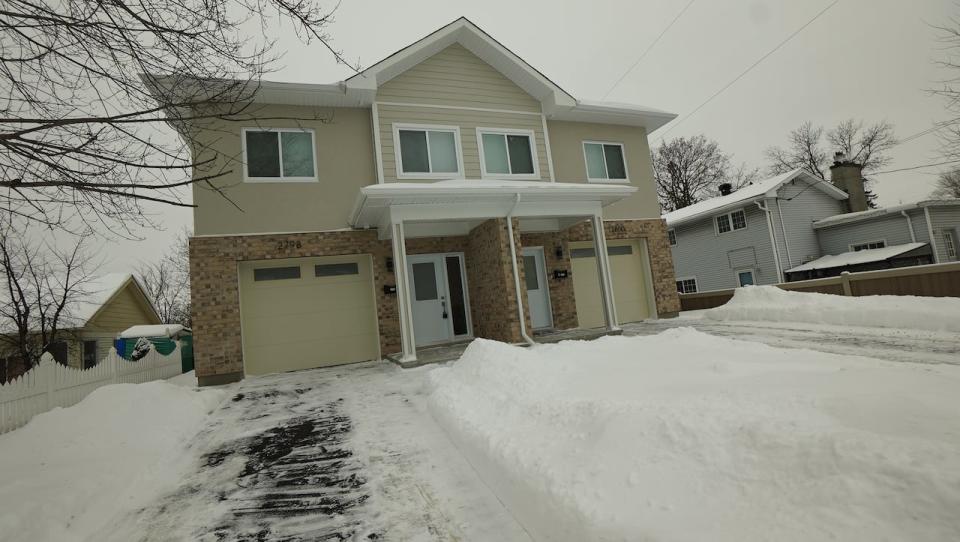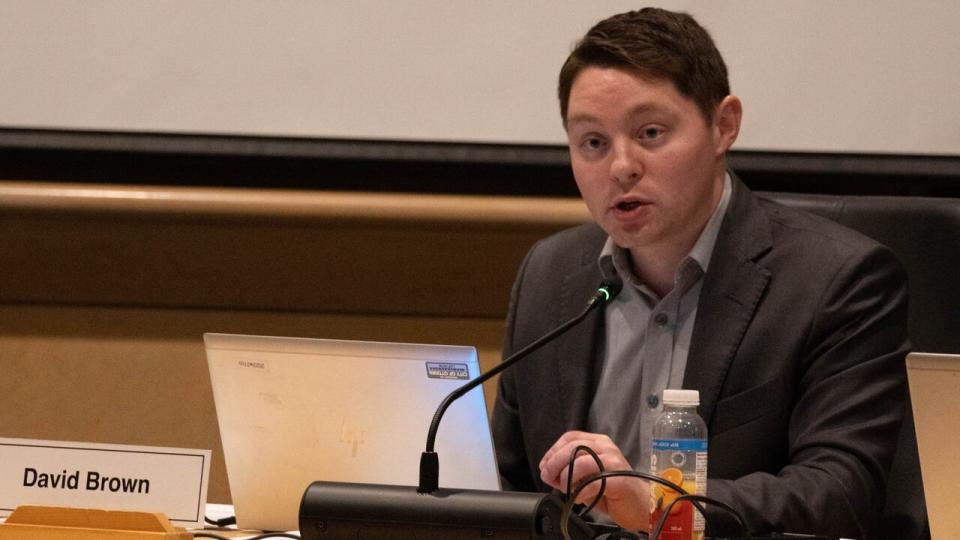Property severance backlog costing time and money, applicants say

A serious backlog of property severance applications at Ottawa city hall has some landowners waiting in limbo, and they say the holdup is costing them time and money.
Lawyers representing some of those property owners say the process took just three weeks before the COVID-19 pandemic, but can now take up to two years.
They say the backlog has led to major financial losses, with some property owners missing out on potential sales and others left unable to refinance costly mortgages. Meanwhile, would-be buyers have been left scrambling for a place to live during a housing crisis.
"It's frustrating," said Tricia Schouten, a lawyer in North Gower. "Every day that's delayed it's costing the client money."
Depending on the situation, lawyers told CBC these delays can cost anywhere from tens to hundreds of thousands of dollars.
It's even led at least one person to consider selling their home at a loss.
Who's being affected
The problem is affecting people across the city, but Rideau-Jock Coun. David Brown said it's particularly acute in rural wards with large lots where severance is common.
"You could sell the severed lots off, or you could build a home on them for your children, which is a very common use that we see," explained Brown, who also pointed to recent retirees.
"In many cases, you get to stay on the farm that you've lived in your whole life, but you know your kids can take over the work of the big property."
The holdup isn't with the approvals; it comes after.
Applicants must first fulfil a series of conditions before city lawyers review the applications and present a final agreement. That's where the delays occur, Schouten said.
They're not big developers. They're often local people who are purchasing a lot down the road from their parents or from where their kids go to school. - Paul Jansen, Jansen Law
"They can't even get started building their home because we're waiting for these severances to get finalized," she said.
"They're not big developers. They're often local people who are purchasing a lot down the road from their parents or from where their kids go to school."
One of Kemptville-based lawyer Paul Jansen's clients was offered a slice of land from his grandparents and purchased a pre-fabricated home, but they nearly lost their deposit due to delays. Jansen said the delay nearly cost them a deposit of as much as $40,000.
"In the end it worked out," he said. "They salvaged their contract, but it was touch and go."
Schouten and Jansen are just two of more than a dozen rural lawyers who have written letters to the city, unhappy with the lack of progress and pleading for a resolution.
'This is all I have'
The backlog is also being felt closer to the city centre, where councillors have been pushing for intensification. One family is desperate to begin renting out part of their property on a prime piece of real estate within 200 metres of a future LRT station.
David Pittis and his wife tore down their detached home when their family began to grow, replacing it with a duplex that would give them more space while also earning them rental income.
The couple and their daughters, ages three and five, are now enjoying their half of the duplex.
"I always tell people, 'I built this house, I plan to die in this house,'" Pittis said.
But thanks to the city's administrative turpitude, the other half of the newly built duplex remains unoccupied, and Pittis said he's had no assurances from the city about when the severance agreement will be finalized.
"For a huge developer, maybe it's not a problem, but I'm not a huge developer," he said. "I have one lot. I have one building. This is all I have. This is my home, so I'm not someone who can spend a lot of money waiting on uncertainty that shouldn't even exist."

David Pittis stands in the finished home he hopes to sever from his property and begin renting out. (Francis Ferland/CBC)
As he waits for the sign-off, Pittis is struggling under a high-interest construction mortgage that he's unable to switch to a lower rate. He already extended it once and doesn't know if his lender will agree to another extension when this one expires early next month.
Right now, he estimates the delay is costing him $200 a day, leading to tough decisions and mounting credit card debt.
"My family were even considering, can we afford to do certain dental work that needs to be done for my family right now? I shouldn't be in this position," Pittis said.

The high-interest construction mortgage on David Pittis's home is about to expire, but he may not be able to refinance it because the property hasn't been officially severed. (Francis Ferland/CBC)
Lawyer shortage
The issue, as with many of the city's current administrative woes, began with the pandemic.
During that period, Ottawa's legal department and private lawyers were feeling pressure and came to an agreement that would provide both sides some relief.
The deadline for applicants to fulfil the conditions of their approved severance applications, and for the city to sign off on them, was lengthened from one year to two.
"We thought it was a benefit," Jansen said. "It turns out that may have been closer to the opposite."
Other factors have slowed the already glacial pace of approvals. Among them, the departure of the city's two most senior lawyers, with a combined 55 years of experience, early last year.
"We were left with hiring persons who were absolutely new to the position without even someone to mentor them," Tim Marc, the city's planning lawyer, told the agriculture and rural affairs committee last year. "This did cause difficulty for legal services."
In late November, Marc said the backlog was at 120 applications, with some nearing the two-year deadline.
He said because of that "guillotine" hanging over them, the only way to prioritize applications was by starting with those about to lapse.

Rideau-Jock ward Coun. David Brown said the backlog is frustrating rural residents who are looking to build homes on large family-owned properties. (Jean Delisle/CBC)
A solution will take time
The city has come up with a partial solution. Residents who have complained about the delay received a letter offering them the chance to pay $3,000 to have outside counsel from Borden Ladner Gervais LLP sign off on behalf of the city.
Schouten and Jansen call that "unacceptable" and unfair, especially given the housing crisis.
"If it was in the medical system that paying a little more would get us to the front of the queue, we would all be outraged," Jansen said. "Law is not as important as medicine, clearly, but it didn't sit well."
Some have been willing to pay it, but not Pittis. He likens the move to "extortion" and points out that it still wouldn't guarantee a firm timeline.
For Brown, the temporary solution is welcome even if it hasn't been well communicated. He pointed out that landowners already pay for the city's legal services separately from the application fees, so the $3,000 isn't really an additional expense.
As for a more permanent solution, Marc said the latest city budget included money for an extra lawyer and five more law clerks.
He said they still need to be recruited and trained, which means the backlog isn't expected to be cleared until at least the end of this year.

